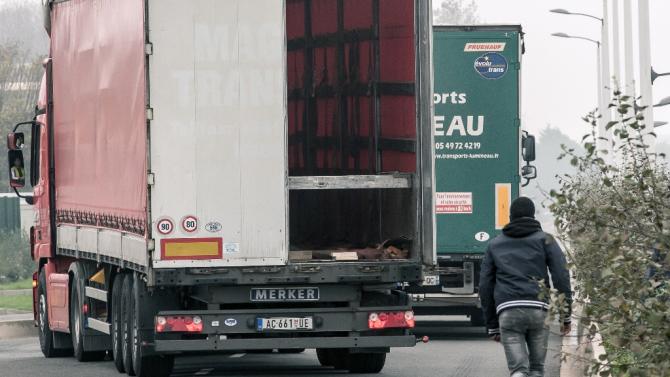- Joined
- Nov 26, 2012
- Messages
- 94
- Points
- 0
Organised crime muscling in on migrant trafficking
AFP
July 29, 2015, 12:00 am

Paris (AFP) - The profits are huge, the risks limited and the demand virtually inexhaustible: trafficking illegal migrants to Europe is increasingly becoming the domain of organised crime groups attracted by the multi-billion-dollar pay-off, experts say.
Transporting desperate migrants from conflict zones in Africa or the Middle East is a lucrative business that generates an estimated $7 billion (six billion euros) a year, and mafia groups want a slice of the pie.
"Cross-border trafficking flows ... are more often connected to organised crime. Complex trafficking flows can be more easily sustained by large and well-organised criminal groups," said the United Nations Office on Drugs and Crime in a recent report.
With better connected and broader "big fish" networks taking over, even the journey itself has changed, said Arezo Malakooti, who works for Paris-based Altai, a group that advises the International Organisation for Migration (IOM).
"In 2013, the immigrants told us that they took a journey in stages, and at each stage they would change smugglers and pay a new price. Sometimes they would stop at locations to work and make money to be able to afford the next step," said Malakooti.
"In 2014 we increasingly saw migrants paying for a journey from home to destination. It's happening more and more now."
- 'Top package ... lifejacket included' -
She said she had talked to Palestinian migrants who said the process was now akin to "going to a travel agent and buying a package, organised from beginning to end."
"So there is evidence to suggest that there are networks operating all the way, or at least some cooperation between different networks."
There is also an interconnection between different networks, suggested by the fact that some migrants passing through Libya end up working as prostitutes in Europe, noted Joel Milman, IOM spokesman.
One of the things attracting the big fish mafia bosses is a richer clientele of middle-class Syrians escaping their war-torn country -- a more prosperous group than their African counterparts.
Last year, some 170,000 migrants entered Italy via the Mediterranean, with each boat bringing in tens of thousands of euros for the smugglers.
Malakooti said there was an "aggressive" marketing campaign in place on social media with "options" and "packages" available depending on the price a migrant is willing to pay.
"For an increased price you can have a safer journey, meaning a life jacket and you can sit on the upper deck of the boat. If you're on the lower deck and the boat capsizes, you're going to be the first to drown."
With the recent dismantling of some criminal networks and the arrest of some of the major players, authorities are building up an idea of the profile of people involved.
Italian authorities are now searching for an Egyptian "superboss", identified through phone taps.
And in lawless Libya, people traffickers, smugglers and militias are joining forces to create a whole industry.
There are "detention centres" set up by militias there to enable the smugglers to come in and advertise their "services", said Malakooti.
Mohammed Abdelsalam al-Kuwiri, in charge of combating illegal migration for the Tripoli-based government set up by the Fajr Libya militia alliance, said the traffickers in the country are "part of a wider worldwide network" with "strong connections in Italy and other European countries."
"Most of them are Libyans but some of them are not, they have Arab nationalities," he said.
So far this year, some 1,750 migrants have perished in the hazardous journey to Europe, according to the IOM, a 30-fold increase over the same period in 2014.
And when there are people so desperate to risk the journey, there will be organised criminal groups willing to take advantage of them, said Malakooti.
"As long as there is a demand for irregular migration then there will be people who are going to try to exploit that.
"As long as the migrants don't have the option of legal migration, there will be a demand for these services."
